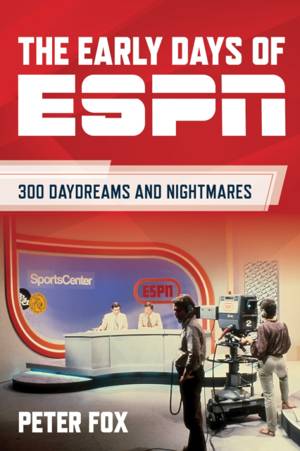
- Afhalen na 1 uur in een winkel met voorraad
- Gratis thuislevering in België vanaf € 30
- Ruim aanbod met 7 miljoen producten
- Afhalen na 1 uur in een winkel met voorraad
- Gratis thuislevering in België vanaf € 30
- Ruim aanbod met 7 miljoen producten
Zoeken
€ 37,45
+ 74 punten
Uitvoering
Omschrijving
The tales of early ESPN people who gambled their careers while critics carped that "all-sports television will never work" are full of guile, luck, fear, fun, and unbridled optimism. As ESPN's founding executive producer, Peter Fox was privy to some spectacular professional efforts by a cadre of Connecticut locals who made the dream real. The first 300 days of the fledgling network were filled with mayhem, on-air gaffes, and the slowest instant replay in television. What started as a humble idea in the late spring of 1978 to capitalize on the brand-new mania for UConn men's basketball soon morphed into ESPN and a plan to begin airing a series of "test broadcasts" in the fall. This is the story of the early days at ESPN, told by one on the network's launching pad, and how a conversation over a couple of martinis in 1978 led to the creation of a broadcast juggernaut.
Specificaties
Betrokkenen
- Auteur(s):
- Uitgeverij:
Inhoud
- Aantal bladzijden:
- 200
- Taal:
- Engels
Eigenschappen
- Productcode (EAN):
- 9781493079575
- Verschijningsdatum:
- 4/06/2024
- Uitvoering:
- Hardcover
- Formaat:
- Genaaid
- Afmetingen:
- 152 mm x 218 mm
- Gewicht:
- 408 g

Alleen bij Standaard Boekhandel
+ 74 punten op je klantenkaart van Standaard Boekhandel
Beoordelingen
We publiceren alleen reviews die voldoen aan de voorwaarden voor reviews. Bekijk onze voorwaarden voor reviews.








